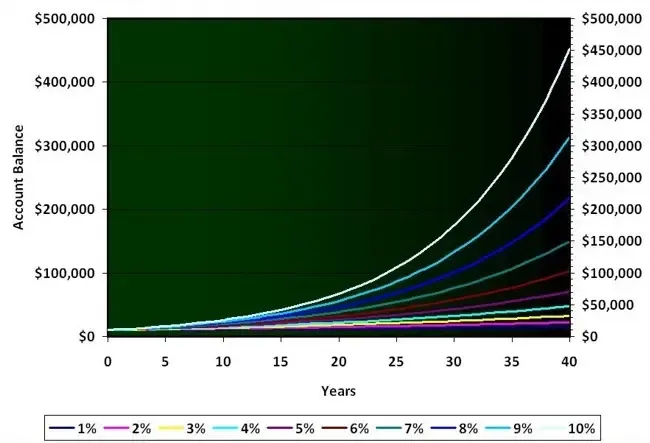
Chancellor Rachel Reeves will set out her plans for the economy when she delivers the Budget on 26 November. How will it affect our industry?
Since their election, the Labour government has said that boosting the UK economy is a key priority. This is agreed as quite fundamental by most commentators. In the search for growth through public sector productivity gains, changes to employers’ National Insurance and National Minimum Wage were made in the 2024 Budget. However subsequent growth in the UK economy in general has been sluggish at best according to official figures.
Meanwhile, government borrowing - the difference between public spending and income from tax take – has continued to increase. That was driven by higher spending on public services, benefits and debt interest. The first of these are political choices, the last is a function of interest rates and the level of borrowing on which interest is charged. Whilst the Bank of England has been cutting interest rates over the course of 2025, the amount borrowed is rising. Inflation is also rising faster than the Bank of England's 2% target, so the costs are similarly rising.
Before the 2024 general election, Labour pledged not to increase the rates of income tax, National Insurance or VAT for ‘working people’. But in her speech at September's Labour Party Conference and in numerous government comments since, it has been suggested that tax rises were a strong possibility, as with rising costs, Reeves needs more money coming in so that she can keep the borrowing levels at the same rate.
But where to find the extra tax take without increasing the burden on ‘working people’?
There have been multiple murmurs of broadening the scope of tax rather than the rate. An obvious instance is income tax thresholds, where the rate stays the same, but the application starts at a lower level compared to inflation, so proportionally more of a person’s income is taxed at higher rates. The income tax thresholds are already frozen until 2028, and extension beyond this is a likely addition in the Budget. The immediate effect on the populace is not obvious, but it does however help increase the forward projections of tax raised, which in turn supports the future spending plans, which can therefore be announced in the Budget in November.
The think tank Resolution Foundation, which has links to some members of the government, has proposed cutting 2p from the employee NI rate, while adding the same amount to income tax. National Insurance more obviously is used to fund the NHS. For an average person in full time employment, the net effect is nil. However, for those who receive income which does not attract National Insurance, such as pensions, rents, interest and dividends, they would be exposed to the additional 2% income tax without the matched NI saving. If implemented, a dentist working through a limited company without any change in activity or income would see an increase in the amounts paid to HMRC.
This would also have a negative effect on the self-employed such as Associates, whose NI contributions are calculated in a different way.
More widely, this would essentially be a move towards recognising a difference between ‘earned’ (the salary of a ‘working person’) and ‘unearned’ income, which is an interesting direction of travel.
Another suggested change to the scope of tax was to widen VAT to apply to private healthcare, which in our industry might blur the definition between health treatments and cosmetic. This prompted the need for Health Secretary Wes Streeting to explicitly rule out introducing VAT on private healthcare, but the concern is that he felt it necessary to do this. Is this something we should be taking into consideration for a few years from now?
One other proposal mooted is to reduce the general level at which VAT starts to become payable from £90,000 to perhaps to half that level over a few years. For most practices, any aesthetic dentistry is easily covered by the £90,000 limit, but at a £45,000 this might be more problematic. Having to register and charge 20% VAT to patients would be quite a step for many practices and may require some thought on how aesthetic and cosmetic dentistry is delivered. If the Department of Health also considered a broadening of the scope of the definition of cosmetic dentistry, this would open doors that we have not really had to consider in detail in the past.
Speculation about possible changes to pension rules is a perennial. Cutting the Higher Rate tax relief on pension contributions would certainly produce additional tax for the Treasury but would make contributions into pensions less worthwhile. In an aging population, reducing the reliance on the State should be seen as a positive, both as a comfort by the individual and also by a future Government seeking options to help fund increasing national levels of state pension and age-related benefits. Reducing the tax relief available also seems counter-productive at a time when the government is trying to shine a light on the attractiveness of the NHS dentistry, and the Superannuation Scheme is recognised as a really positive aspect of this. For a government which purports to want to encourage NHS dentistry, this would be a retrograde step.
It could of course exempt NHS Superannuation contributions from any restriction on tax relief rate – that on the other hand would send a tangible positive signal.
Another adjustment to pensions which is perhaps more likely is a restriction on the 25% tax free lump sum. This is another change which would make pension saving less attractive in the long term, but in the balance the Chancellor may decide that short term benefits of raising money for the Treasury are more attractive at the moment. This would affect dentists taking their retirement; it may push some into an early decision, but as always specialist advice should be taken.
Bringing private pension pots into the Inheritance Tax firing line in an earlier Budget has already generated a reticence to use pensions as a savings mechanism to fund a retirement.
Changes to Capital Taxes are not ruled out by the government’s pre-election pledges. We have already seen increases to capital gains tax on the sale/retirement; this is unlikely to change again this year because the increases have already been set in advance, and we already know about the next increase in April 2026. Beyond that, there is more general talk of aligning the rates of income tax and capital gains tax, which would imply an uplift in non-business capital gains rates.
On Inheritance Tax, abolishing the relief on the main residence would raise a substantial amount, but it does have an effect on a significant number of the public.
If approved by MPs, any tax changes in the Budget can come into effect immediately. However, this is unusual. Given that a number of changes were announced last year and are still to come into operation, it is unlikely that many of the November Budget changes would be adjusted immediately.
Enter your details above to receive a link you can use to download your FREE pdf
Read More

Here's What New Associates Need To Know

What Is Your Definition Of Retirement?

How Often Do You Look Back On Your Life And Think “I Wish That I Knew Than What I Know Now?”

Can I Invest In My ISA For Passive Income?

The Role Of Luck In Investing



